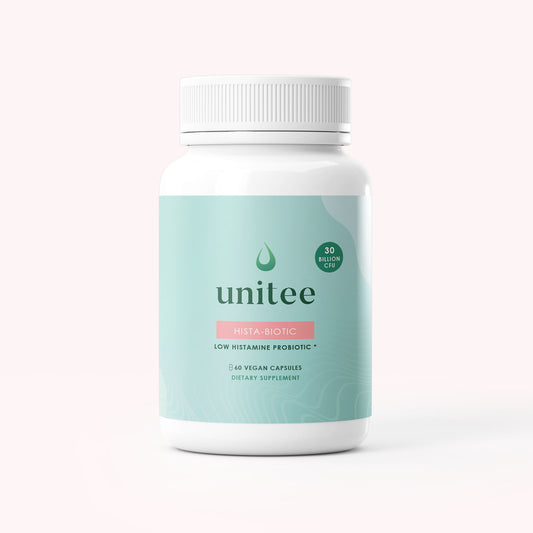Today we are talking about FALSE ADVERTISING in NUTRITION. I’m talking false advertising in the food industry, false advertising in commercials, false advertising in the news, and any other type of false advertising that’s DAMAGING. YOUR. HEALTH.
I’m sure, as someone who cares about your health, you’ve fallen victim to the ‘consumer confusion’ where one source will tell you a certain diet, product or supplement is good for you, only to turn around and have another source tell you how bad and toxic that same diet/product/supplement is. This leaves you wondering which products are healthy vs toxic, and which is actually the healthiest diet.
This happens on a daily basis and, as one of my professors put it, we are the only species on earth that has to ASK professionals what we should be eating.
Nutritional Misinformation: Evaluating Informational Resources
The fact is, when it comes to popular blogs, media and advertising, the stories that are weaved about nutrition have a goal in mind: to tell an interesting story, to create a shocking headline, or to sell a specific product. It is not to tell the truth that accurately represents an objective point of view to the public. It’s to entertain and draw in an audience.
That is why the most popular celebrities are not scientists telling you all educational angles of a 10-year research study. It’s not the most entertaining thing to filter through this information and, unless you’re a scientist like myself, you may even find it a total snooze-fest.
That’s understandable, and I don’t blame you. In fact, I might find your career even more boring than you find mine.
The motives for perpetuating false ideas of what is considered nutrition aren’t always fuelled by poor intentions. Sometimes, these may be noble, such as in the case of popular bloggers who are not qualified scientists. They may just want to help people, but due to their lack of knowledge on how to appropriately evaluate the available evidence, even those with the most noble motives end up unintentionally perpetuating false information that, in the scientific world, is not sufficient evidence to be basing any sort of health claims on.
Whatever the motives, the bottom line is that the real story is NOT getting out. Media, advertising, celebrities, popular blogs…they all tend to have much louder voices than real research scientists and nutritional scientists who are objectively evaluating the data out there.
In fact, it is very frequent that I see false stories that actually go against scientific evidence entirely coming from “reputable” news outlets. These include stories explaining that feeding your children candy prevents obesity, feeding your children ice cream for breakfast makes them smarter, and going gluten free promotes type 2 diabetes.
All of these are recent headlines I’ve seen and, it’s highly notable that the above articles linked are what the public considers “reputable” news outlets including CBS News, The Daily Mail and Global News.
However, for any scientist who has even remotely assessed the available study pool, I’m certain we can all firmly agree that this is nothing short of FALSE ADVERTISING AND MEDIA LIES. I wish there was a way to make words look more enraged than using bold and capital letters, because this type of misinformation is truly damaging the health of the public.
By perpetuating dramatically false claims with no strong scientific backing that are well-known to damage human health, I would go so far as to say this is a method of gradual mass murder.
How To Assess Info Sources
It’s no crime to click a catchy headline out of curiosity. Heck, sometimes they can be the most interesting and entertaining part of your day! However, if you’re thinking about applying information to yourself, it’s important evaluate the source it’s coming from, and always remember the following:
- JOURNALISTS ARE NOT SCIENTISTS.
- DOCTORS ARE NOT NUTRITIONISTS.
- ANYONE CAN START A BLOG – CREDIBLE OR NOT.
- ADVERTISING ALWAYS HAS A MOTIVE IN MIND.
The above sources, unless particularly trained in the area of nutritional science, are NOT valid resources to be getting your health info and could even potentially be DAMAGING to your health.
Be a smart consumer and be aware of who you are listening to!
Health begins in the gut.
Your friendly neighbourhood scientist,
Anita Tee
MSc Personalized Nutrition, BSc Human Biology

Anita Tee
My name is Anita Tee. I'm a nutritional scientist who specializes in histamine intolerance. I hold a Master of Science in Personalized Nutrition and a Bachelor of Science in Human Biology and Psychology. For the past ten years, I have used my experience in nutritional and medical health sciences to create a scientifically backed, natural approach to healthcare that relies 100% on evidence-based research. As I previously suffered from - and overcame - histamine intolerance, my focus is to increase recognition and expand the available resources and protocols available for resolving this particular disorder. To date, I have helped over 4,000 individuals fully resolve or better manage their histamine intolerance symptoms.






